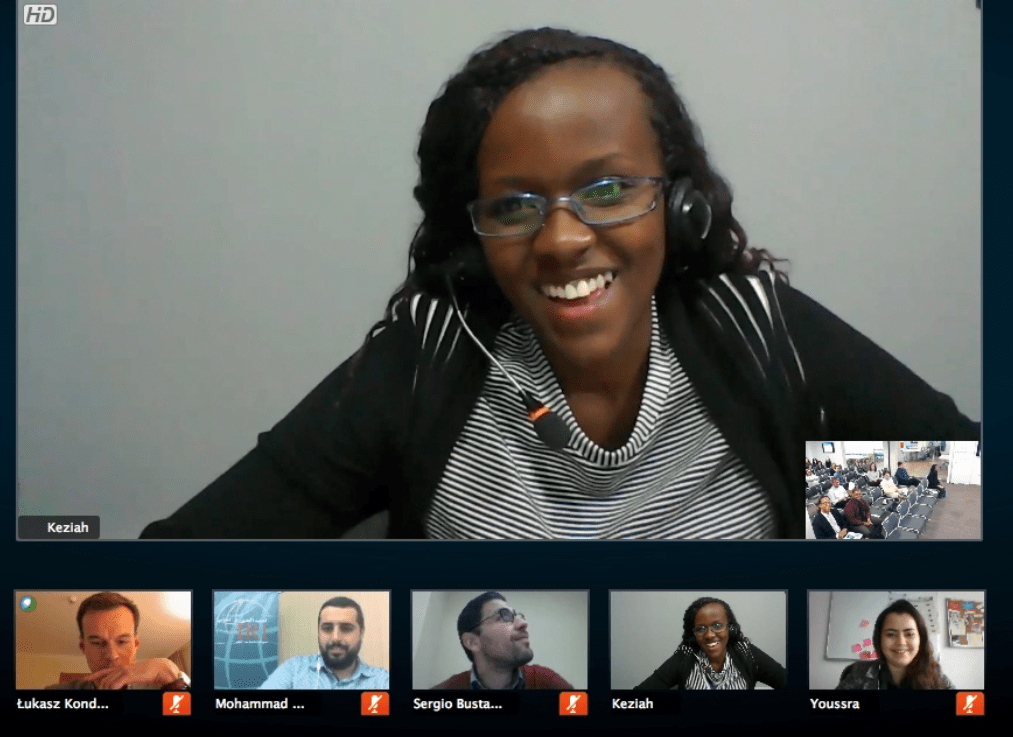
At IRI we believe that the principles of evaluative thinking reflect the democratic values of transparency, accountability and responsiveness. That is part of the reason we take the monitoring and evaluation (M&E) of our work so seriously. One example of our efforts to prioritize meaningful M&E throughout our work is a training program for field staff that utilizes our Mentored Evaluation approach, sponsored by the National Endowment for Democracy. This program is designed to build the capacity of our field-based staff to understand and utilize M&E principles and methods in their work. Specifically, we aim to grow their capacity to develop and conduct evaluations of their programs. In our experience, better in-country evaluation capacity leads to greater understanding of programmatic results, more effective programs, and strengthened democratic institutions and processes.
Having implemented several programs utilizing the Mentored Evaluation approach over the past few years, we have developed a cadre of dozens of M&E specialists (dare I say M&E enthusiasts!) among our field staff and partners in as many countries around the world. As an M&E enthusiast myself, it’s exciting to watch this cadre grow both in numbers and in knowledge.
The most recent iteration of our Mentored Evaluation program culminated this week with a learning workshop in Washington, DC. During this videoconference, “M&E scholars” (as we refer to program participants) from Guatemala, Morocco and Poland presented their evaluation projects and their experiences in the Mentored Evaluation program.
First, we heard from Sergio Bustamante in Guatemala who discussed his work evaluating the effectiveness and reach of IRI’s Youth Democracy Lab program in Guatemala and El Salvador. Then, Youssra Bakhir in Morocco shared with us her experience evaluating the quality and scope of IRI’s Campaign Schools throughout Morocco. Next, Lukasz Kondraciuk described his experiences evaluating a Eurasia regional program focused on building the capacity of young political party members. Each M&E scholar explained the evaluation questions that guided their evaluation, the methodologies used to collect data and the findings of their evaluations. Each scholar also provided recommendations for program implementers or for M&E specialists to consider in future programs and evaluations.
We also heard from peer mentors, Mohammad Allahham (IRI-Jordan) and Keziah Waweru (IRI-Kenya). Both Mohammad and Keziah previously graduated from the Mentored Evaluation program and now serve as peer mentors in the program.
Mohammad told us of how serving as a mentor spurred him think creatively about M&E processes including data collection and analysis. When Youssra Bakhir, one of Mohammad’s mentees, asked him a tough question, he explained that he had to dive back into his IRI M&E handbook and other resources to help her develop an appropriate data collection tool. (You can read more about Mohammad’s journey to becoming an M&E specialist in this blog post.)
Keziah explained how her strengthened critical and evaluative thinking skills, a result of the Mentored Evaluation program, have helped her exert professional influence in broader M&E and democracy and governance communities in her home country of Kenya. (You can read more about Keziah’s experience as an M&E specialist in Kenya in her blog post.)
As highlighted by Keziah’s presentation, the scholars’ and mentors’ influence doesn’t stop within their office or even within their country. Several of our scholars and mentors have gone on to provide M&E training and capacity building assistance to hundreds of our partners and beneficiaries in Africa, Asia, the Middle East and North Africa, Latin America and the Caribbean, Europe and Eurasia. Collectively, they are promoting evaluative thinking and practices in the global democracy and governance sector.
Listening to the impressive presentations from our field staff around the world during the learning workshop made us even more excited to launch the next iteration of the program soon! Stay tuned for updates about the newest iteration of the Mentored Evaluation program over the next several months.
Top